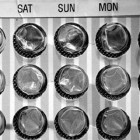
An Unjust Solution
|
Not long ago in Georgia, a six-year-old named Salecia Johnson was handcuffed and taken from her elementary school to the local police station. The school chose to do this, instead of sending her to time-out, or home to her parents or to the principal’s office. Zero tolerance in our schools has become an excuse for a blatant abdication of leadership, fairness, compassion, and common sense. When children are arrested for being children (Salecia apparently had a temper tantrum, something the local police in Millidgeville, Ga., figured out after they all went down to the station) who is impacted, what are the implications for our future, and what can we do? Increasingly, it is children with disabilities and minorities who are impacted the most.










